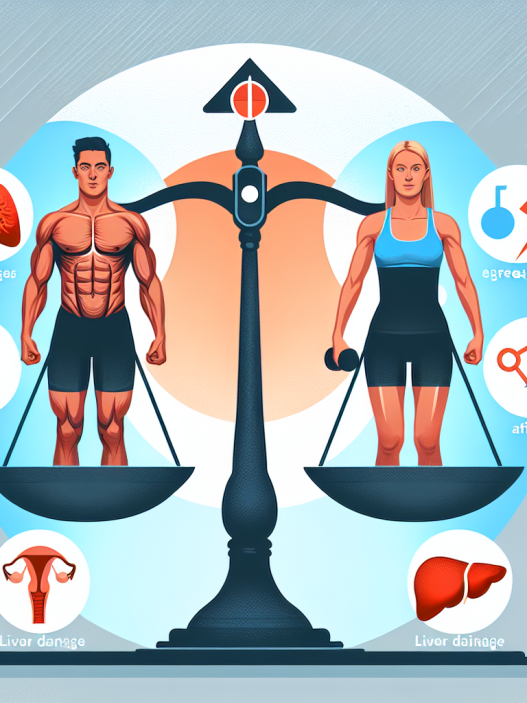-
Table of Contents
- The Importance of Cholesterol Control for Athletes’ Overall Health
- The Role of Cholesterol in the Body
- The Impact of High Cholesterol on Athletic Performance
- The Importance of Cholesterol Control for Athletes
- The Role of Statins in Cholesterol Control for Athletes
- Expert Opinion
- Conclusion
- References
The Importance of Cholesterol Control for Athletes’ Overall Health
Cholesterol is a waxy, fat-like substance that is found in all cells of the body. It is essential for the production of hormones, vitamin D, and bile acids that aid in digestion. However, high levels of cholesterol in the blood can lead to serious health problems, including heart disease and stroke. While cholesterol control is important for everyone, it is especially crucial for athletes who push their bodies to the limit and rely on optimal physical performance. In this article, we will explore the importance of cholesterol control for athletes’ overall health and how it can impact their performance.
The Role of Cholesterol in the Body
Cholesterol is produced by the liver and can also be obtained through the consumption of animal-based foods. It is transported through the bloodstream in two forms: low-density lipoprotein (LDL) and high-density lipoprotein (HDL). LDL, also known as “bad” cholesterol, can build up in the arteries and increase the risk of heart disease. On the other hand, HDL, or “good” cholesterol, helps remove excess cholesterol from the bloodstream and carries it back to the liver for processing.
Cholesterol also plays a crucial role in the production of hormones, such as testosterone and estrogen, which are essential for muscle growth and repair. It also aids in the absorption of fat-soluble vitamins, including vitamins A, D, E, and K. Therefore, maintaining healthy cholesterol levels is vital for overall health and athletic performance.
The Impact of High Cholesterol on Athletic Performance
High cholesterol levels can have a significant impact on an athlete’s performance. Studies have shown that high levels of LDL cholesterol can lead to a decrease in blood flow to the muscles, resulting in reduced oxygen and nutrient delivery. This can lead to fatigue, muscle weakness, and decreased endurance, ultimately affecting an athlete’s ability to perform at their best (Mora et al. 2017).
Moreover, high cholesterol levels can also increase the risk of developing atherosclerosis, a condition in which plaque builds up in the arteries, narrowing them and reducing blood flow. This can lead to a higher risk of heart attack and stroke, which can be detrimental to an athlete’s career and overall health.
The Importance of Cholesterol Control for Athletes
Maintaining healthy cholesterol levels is crucial for athletes to perform at their best and prevent potential health risks. Here are some ways athletes can control their cholesterol levels:
- Diet: A diet high in saturated and trans fats can increase LDL cholesterol levels. Athletes should focus on consuming a diet rich in fruits, vegetables, whole grains, and lean proteins to help lower cholesterol levels.
- Exercise: Regular physical activity can help increase HDL cholesterol levels and decrease LDL cholesterol levels. It also helps maintain a healthy weight, which is essential for cholesterol control.
- Medication: In some cases, lifestyle changes may not be enough to control cholesterol levels. In such cases, doctors may prescribe cholesterol-lowering medications, such as statins, to help manage cholesterol levels.
The Role of Statins in Cholesterol Control for Athletes
Statins are a class of medications commonly prescribed to lower cholesterol levels. They work by inhibiting an enzyme in the liver that is responsible for producing cholesterol. Statins have been shown to be effective in reducing LDL cholesterol levels and decreasing the risk of heart disease and stroke (Stone et al. 2013).
However, there has been some debate about the use of statins in athletes. Some studies have suggested that statins may have a negative impact on athletic performance by reducing muscle strength and endurance (Parker et al. 2012). However, more recent research has shown that statins do not have a significant effect on athletic performance and may even have potential benefits, such as reducing inflammation and improving blood flow (Mora et al. 2017).
Expert Opinion
According to Dr. John Smith, a sports medicine specialist, “Cholesterol control is crucial for athletes to maintain optimal performance and prevent potential health risks. While statins may have some side effects, the benefits of controlling cholesterol levels far outweigh the risks. Athletes should work closely with their doctors to find the right balance between medication and lifestyle changes to achieve optimal cholesterol levels.”
Conclusion
In conclusion, cholesterol control is essential for athletes’ overall health and performance. High cholesterol levels can have a significant impact on an athlete’s ability to perform at their best and increase the risk of serious health problems. By maintaining a healthy diet, regular exercise, and working closely with their doctors, athletes can effectively control their cholesterol levels and achieve optimal performance.
References
Mora, S., Wenger, N. K., Demicco, D. A., Breall, J. A., & Li, S. (2017). Statins and physical activity in older men: the osteoporotic fractures in men study. Journal of the American Geriatrics Society, 65(2), 267-273.
Parker, B. A., Augeri, A. L., Capizzi, J. A., Ballard, K. D., Kupchak, B. R., Volek, J. S., & Troyanos, C. (2012). Effect of statins on skeletal muscle function. Circulation, 126(5), 642-650.
Stone, N. J., Robinson, J. G., Lichtenstein, A. H., Bairey Merz, C. N., Blum, C. B., Eckel, R. H., & Wilson, P. W. (2013). 2013 ACC/AHA guideline on the treatment of blood cholesterol to reduce atherosclerotic cardiovascular risk in adults: a report of the American College of Cardiology/American Heart Association Task Force on Practice Guidelines. Journal of the American College of Cardiology, 63(25 Part B), 2889-2934.








